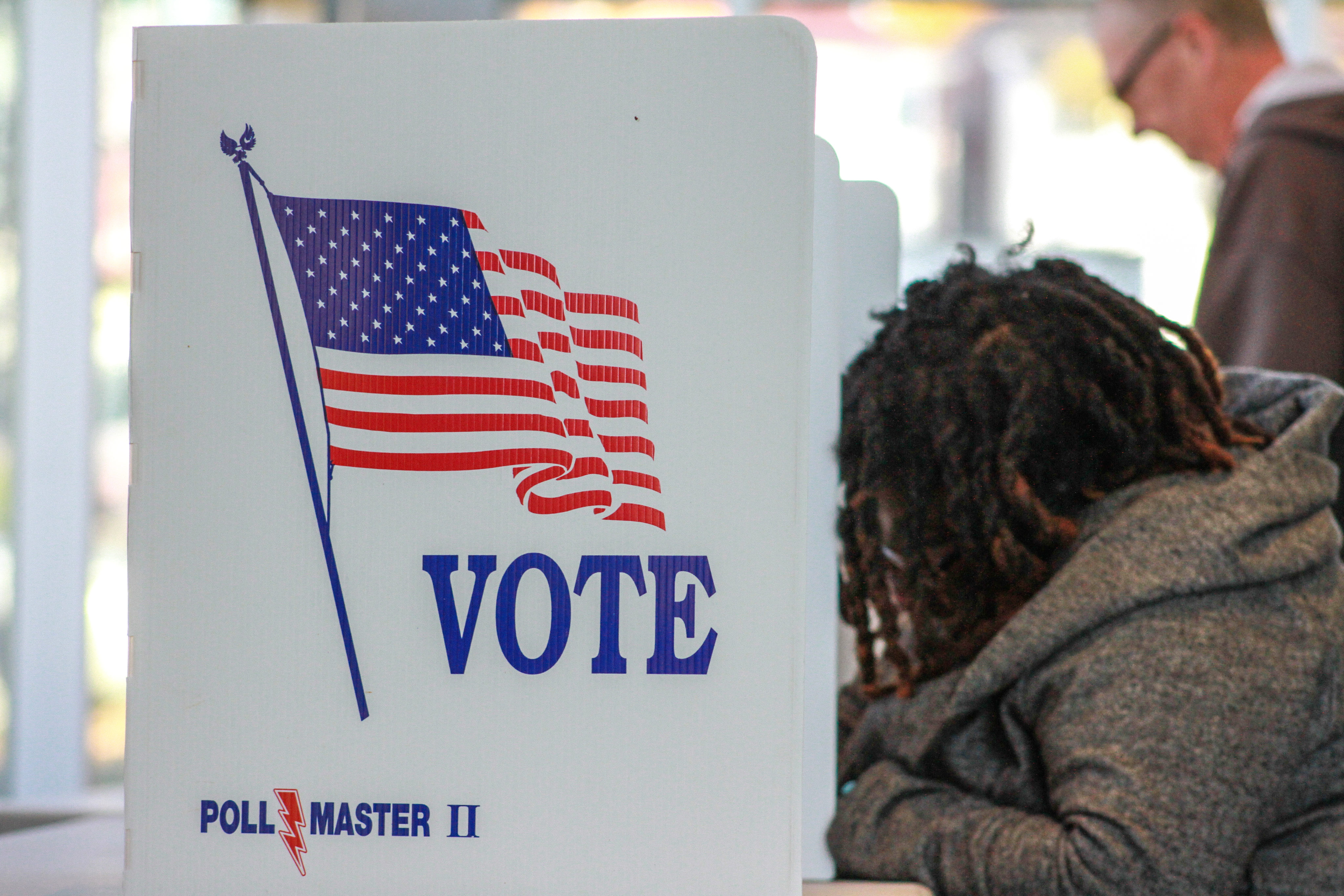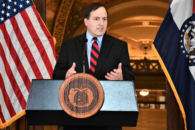The COVID-19 pandemic continues to bring big changes to Missouri — including when it comes to upcoming elections.
Missouri’s municipal elections were already pushed from April to June, but still, voters have questioned how voting will work once the polls finally open. As health officials mandate social distancing practices and cap public gatherings, questions and recommendations about possible alternatives to in-person voting have been cropping up in public forums.
Boone County Clerk Brianna Lennon outlined a set of actions to be taken to make elections safer during the global pandemic in a Twitter thread earlier this week. We chatted with her about election security and alternative voting methods.
Below is a conversation between The Missouri Times (TMT) and Lennon (BL) with minimal edits made for clarity and brevity.
TMT: What steps could election officials take to ensure voter safety?
BL: Local election authorities can encourage voters to consider absentee voting so that they don’t have to choose between practicing social distancing for their health and exercising their constitutional right to vote. We are also making preparations for in-person voting that include providing hand sanitizer and cleaning supplies while implementing social distancing.
One thing that local election authorities are experts in is contingency planning. Every county clerk and board of elections is working hard to plan scenarios that keep election judges and voters safe.
TMT: How could absentee ballots be implemented during the pandemic?
BL: Voters can currently request absentee ballots by choosing one of six reasons that they need to vote absentee, including “incapacity or confinement due to illness or physical disability.” One way to ensure that every voter is eligible to vote absentee is for the governor or secretary of state to explicitly state that voters practicing social distancing or self-quarantining as a result of COVID-19 can vote absentee due to incapacity or confinement due to illness or injury.
The legislature could also amend the absentee voting law to allow every Missourian to request an absentee ballot.
TMT: What counties are already taking steps in that direction?
BL: County clerks and boards of elections are working together on legislative proposals that include allowing all voters to request absentee ballots, but state action is necessary to change our laws.
TMT: Are other states making this kind of change, and how?
BL: Missouri is only one of nine states that have no form of early voting or no-excuse absentee voting. In addition, five states already conduct all of their elections by mail.
TMT: Would a national change to absentee voting during this pandemic be plausible, and why or why not?
BL: With the decentralized nature of elections — there are 116 local election authorities in Missouri, for example — finding a one-size-fits-all solution that works for every state in the country would be difficult.
TMT: Has there been community support for these changes?
BL: Yes. Voters are concerned about their ability to safely cast a ballot, and election judges are concerned about protecting their health while serving democracy. As local election authorities, we’re concerned about having the resources necessary to deliver the caliber of elections that Missouri voters expect and deserve.
TMT: Do you think this current crisis will change the way elections are approached in the future. If so, how?
BL: Yes. Elections haven’t substantively changed in Missouri in more than 30 years, and it has a profound effect on how adaptable our elections are in times of crisis management. County clerks have extremely limited ability to offer voters choices for casting their ballot. Even in the most serious of circumstances — like an emergency declared by the president of the United States or the governor of Missouri — current Missouri law does not proactively serve voters.
TMT: Tell us more about the difference between a mail-in election and an expansion to absentee voting.
BL: In a mail-in election, election authorities (county clerks) mail a ballot to each voter (voters do not have to make any kind of request to get their ballot). Clerks then have to verify the signature on the returned envelope in order for the ballot to count. This requires the resources to be able to send out mail ballots to every voter — in Boone County, that would be mailing ballots, a return envelope, and instructions to over 100,000 voters — and then hire a large number of election judge teams to conduct signature verification once the ballots are returned.
Space is also needed to securely store all of the ballots. Mail-in voting is allowed under current Missouri law ONLY for elections that are single-issue (no candidates) nonpartisan elections.
Absentee voting is a six-week time period leading up to the election and requires voters to first submit an application to the county clerk. On the application, the voter must choose one of six reasons for why they need to vote absentee. The county clerk processes the application and then mails a ballot, return envelope, and instructions to the voter. The voter then has to have the ballot envelope notarized (unless they are a military voter or voting due to incapacity or confinement due to illness or physical disability). When the returned envelope comes back, election judge teams have to check to make sure the ballot envelope is fully completed and notarized, and then the ballot is counted.
For perspective, Boone County sent out just more than 1,700 absentee ballots for the March 10 presidential preference primary.
EDITOR’S NOTE: For up-to-date information on coronavirus, check with the CDC and DHSS.

Cameron Gerber studied journalism at Lincoln University. Prior to Lincoln, he earned an associate’s degree from State Fair Community College. Cameron is a native of Eldon, Missouri.
Contact Cameron at cameron@themissouritimes.com.






























